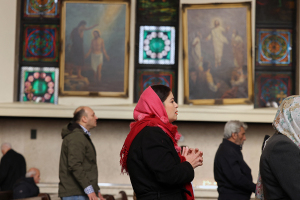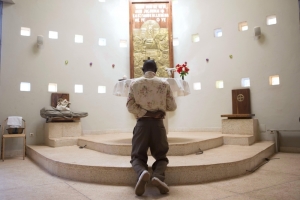Buzzfeed, Time Magazine and Model Airplane Faith
Christianity Isn't a Hobby

If we hope to see our culture take Christianity seriously, we've got to take it seriously ourselves. In other words, our faith has to be more than just a pastime.
Maybe you've seen that recent viral video from internet news and humor site Buzzfeed. In it, a half a dozen young actors take up the mantra, "I'm a Christian, but I'm not …"
"… I'm not homophobic," says one. "… I'm not judgmental," and "… I don't place myself on a pedestal," boast others.
Most self-identified as gay, queer, feminist, or some other trendy label. Most striking to me in all these videos was how free their version of Christianity seemed to be from any external authority.
There was nothing revealed in Scripture or history that seemed to matter in their understanding of Christianity. They made up a version of Christianity in which they were in charge. They felt fully up to determining the beliefs and behaviors they could accommodate to their faith. And they alone were the authority of their lives and loves.
In other words, their Christianity isn't so much a worldview as it is a hobby — something fun and meaningful to practice in the privacy of their lives and churches, to bring meaning and purpose to themselves. But in public, their Christianity must be subject to the prevailing winds on sexual orientation and gender identity.
And it's not just those Buzzfeed voices who treat comprehensive faith as a diversion rather than a worldview.
In a recent "Question Everything" issue of TIME magazine, editors asked dozens of celebrities, activists, and writers for their thoughts on 21 questions people today are asking. Among the questions? "Is monogamy over?" "Do robots have rights?" and "What would you change if you could travel back in time?"
Now most of the questions touched on important worldview issues, like human identity, moral priorities, and individual morality. But as Ed Stetzer and I discussed recently on BreakPoint This Week, it's strange that it didn't occur to TIME to ask for a theologian's perspective. Christians were hardly even at the table to discuss what TIME considered our culture's most pressing questions. Why? Because faith is seen as a private hobby, not as a public source of truth.
Way back in 1987, Yale law professor Stephen Carter saw this "hobbyfication" of faith unfolding.
Secular educators had, Carter said, essentially told those with religious beliefs, "Yes, we cherish you — now go away and leave us alone." And 28 years ago, Carter foresaw a time when "religion, far from being cherished, will be diminished, and … religious belief will ultimately become a kind of hobby: something so private that it is as irrelevant to public life as the building of model airplanes."
And in 2015, it's obvious his prediction has come true. But most alarming is how often Christians self-segregate their own faith, treating it like a hobby instead of an all-encompassing worldview.
During Pope Francis's recent visit to the United States, for example, one conservative journalist asked why the pope couldn't stick with spiritual issues instead of talking about economics, the environment, and social justice.
"The Gospel isn't directly aimed at helping the poor or averting supposed environmental disasters," she wrote, but "is centrally about saving our eternal souls, about addressing spiritual — not material — poverty."
No! No! A thousand times no!
Now whatever you think of Pope Francis's policy stances, I can hardly think of a less Christian way of looking at our culture than what this journalist described.
We believe that Jesus took on humanity, lived, died, and rose again to save us from our sins — yes. But Jesus described His own mission in Matthew as "Thy kingdom come on earth as it is in Heaven," and in Revelation as "making all things new."
Christ is over all. His rule affects and informs everything — not just the spiritual, the personal, and moral. There's no divide between the secular and the sacred. It's all His.
If we want the Buzzfeeds and TIME magazines of our culture to start taking our faith seriously, we need to put away the modeling glue and start taking it seriously ourselves.
This article was originally posted here



























